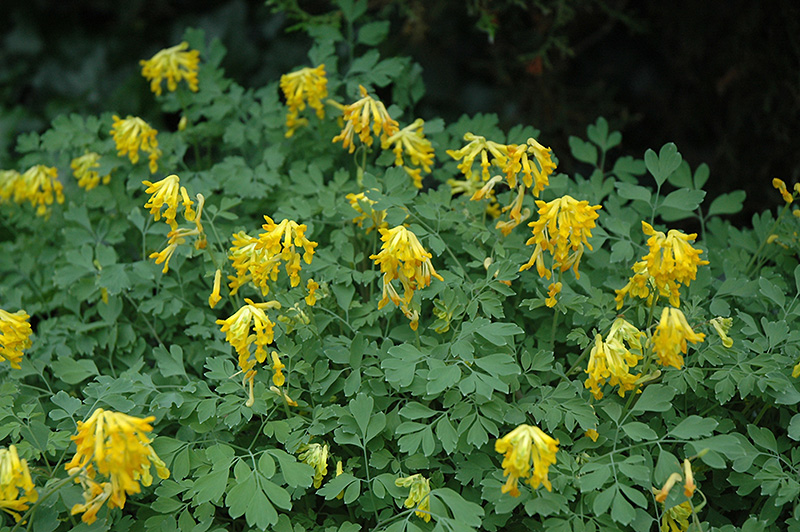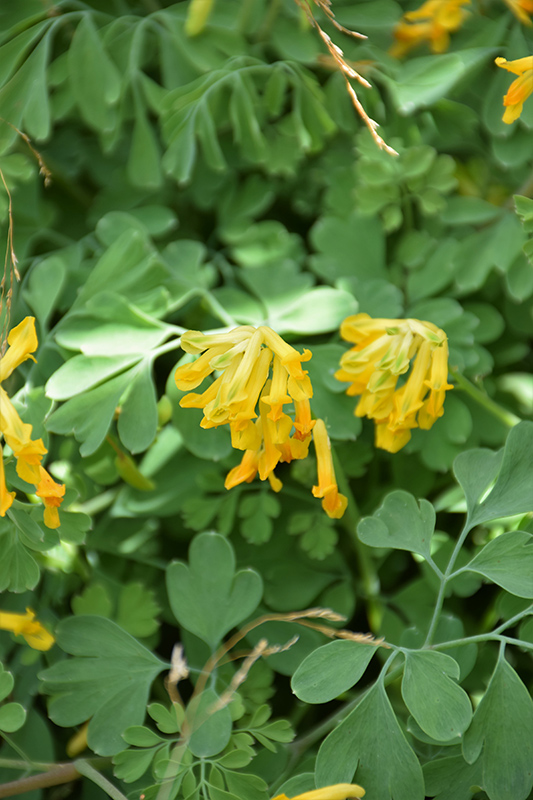Height: 12 inches Spread: 12 inches
Sunlight:
Hardiness Zone: 3 Other Names: Fumitory Description: A beautiful, easy to grow selection that presents mounds of light green foliage with sunshine yellow flowers in mid spring; summertime dormant in hot areas, but will continue to bloom into the fall in cooler areas; great for borders or beds Ornamental Features Golden Corydalis has spikes of yellow trumpet-shaped flowers rising above the foliage from mid spring to early fall, which are interesting on close inspection. Its compound leaves remain light green in color throughout the season. Landscape Attributes Golden Corydalis is an herbaceous perennial with a more or less rounded form. It brings an extremely fine and delicate texture to the garden composition and should be used to full effect. This plant will require occasional maintenance and upkeep, and should be cut back in late fall in preparation for winter. Deer don't particularly care for this plant and will usually leave it alone in favor of tastier treats. Gardeners should be aware of the following characteristic(s) that may warrant special consideration; Golden Corydalis is recommended for the following landscape applications; Planting & Growing Golden Corydalis will grow to be about 12 inches tall at maturity, with a spread of 12 inches. Its foliage tends to remain dense right to the ground, not requiring facer plants in front. It grows at a medium rate, and under ideal conditions can be expected to live for approximately 5 years. As an herbaceous perennial, this plant will usually die back to the crown each winter, and will regrow from the base each spring. Be careful not to disturb the crown in late winter when it may not be readily seen! This plant does best in partial shade to shade. It prefers to grow in average to moist conditions, and shouldn't be allowed to dry out. It is not particular as to soil type or pH. It is quite intolerant of urban pollution, therefore inner city or urban streetside plantings are best avoided, and will benefit from being planted in a relatively sheltered location. Consider applying a thick mulch around the root zone in winter to protect it in exposed locations or colder microclimates. This species is not originally from North America.![]()
![]()
![]()
![]()
![]()
![]()
![]()
![]()
![]()
![]()
![]()
Plant Finder
Characteristics
Applications
Features & Attributes



